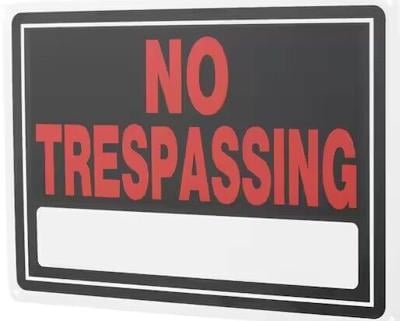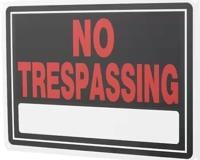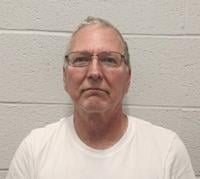
No Trespassing sign
HARRISBURG – Trespassers can’t sue when they’re injured on others’ property, the Pennsylvania Commonwealth Court has decided in a lawsuit brought by a man who went to the wrong address to buy a trailer.
Jason and Juanita Hochstetler were surprised to find a stranger injured at their Bedford residence in March 2018, then were forced to defend themselves in court from claims Robert DeWitt had a right to be there. A Bedford County judge ruled against DeWitt in a decision affirmed Monday by the Commonwealth Court.
“(E)ven if we accept… DeWitt’s contention that an implied license exists to knock on a door seeking to speak with an occupant, he exceeded the scope of his license by remaining on the property for five minutes and deviating from the front path rather than remaining by the door, therefore becoming a trespasser,” Judge Matthew Wolf wrote.
GPS led DeWitt to believe he was at an address where an owner had a trailer for sale, but no one answered a knock at the door. DeWitt walked toward a barn in search of anyone, testifying he spent about five minutes on the premises.
The Hochstetlers said there were two “no trespassing” signs posted, but DeWitt said he didn’t notice either. In a light dusting of snow, DeWitt either tripped or slipped and hurt himself walking back to his vehicle.
Jason Hochstetler then noticed DeWitt and called an ambulance. He was repaid with a lawsuit, filed by the Johnstown firm Spence, Custer, Saylor, Wolfe & Rose against him and his wife, their construction business and the Bedford County Airport Authority, which owned the land.
There are instances when someone not invited on a premises is afforded the legal protection of someone who is. They include travelers “overtaken by a violent storm” or a lost person who can assume there’s no objection to visiting a house for shelter or directions, the Restatement (Second) of Torts says.
DeWitt was none of these things, the court ruled. Instead, he was there to find the seller of the trailer with no intention of asking for directions. He didn’t know the name of the seller and apparently had the wrong address.
A federal court ruling from 2015 had recognized an implied license to knock on a door to speak with an occupant. But that was in a case involving reasonable entry by police, and the Commonwealth Court ruled that didn’t apply in a premises liability lawsuit.
“He lingered longer without invitation,” Wolf wrote. “Therefore, DeWitt exceeded the scope of any implied license to knock, becoming a trespasser.
“It was in this capacity as a trespasser that DeWitt was ultimately injured on the property.”







